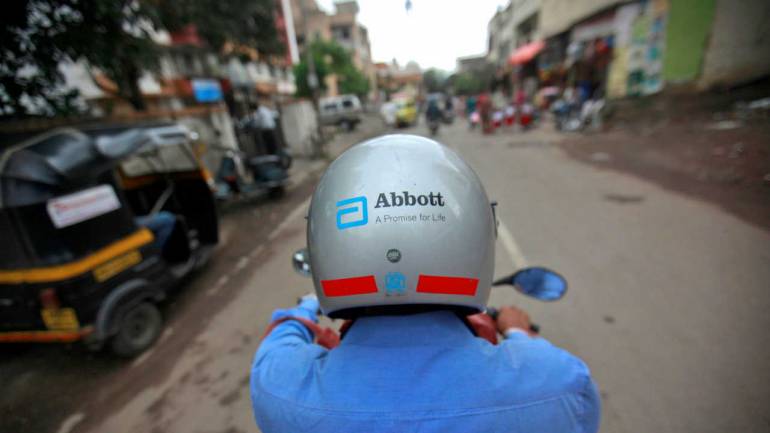The court directed the Central government to exclude 15 fixed dose combination (FDC) medications from the ban recommended by a sub-committee appointed by Drugs Technical Advisory Board.
Shares of Abbott India rose 2.54 percent on the BSE on September 10, after Supreme Court (SC) directed the government to lift the ban on 15 fixed dose combination (FDC) medications that were approved before 1988.
The ban was recommended by a sub-committee appointed by Drugs Technical Advisory Board (DTAB). The government had asked the DTAB sub-committee to re-examine 334 FDCs, on the order of the SC.
The apex court left it open to the government to carry out a fresh enquiry into the safety of these 15 pre-1988 FDCs if it so chose to ban them. The 15 FDCs included several leading brands manufactured by Abbott.
However, the sub-committee proceeded to examine the pre-1988 FDCs and recommended their prohibition.
related news
"The Court by its order dated September 7, 2018 clarified that the Sub-Committee cannot reexamine the pre-1988 FDCs and has directed the Central Government to not implement or act upon the recommendations of the Sub-Committee in respect of the pre-1988 FDCs," said J Sagar Associates, the legal counsel for Abbott India.
Some of Abbot's popular FDC brands that were banned include cough medications such as Phensedyl Cough Linctus, Tossex, New Tixylix and Tixylix LS.
Phensedyl alone has market share of Rs 339 crore as of July 2018, while Tossex and Tixylix generate around Rs 60 crore each in sales.
The SC directive excluded cold and cough medication brands of other drug makers such as Griffon's Grilinctus, Cipla’s Cofdex, Nocold and Bromolin, Glenmark’s Ascoril C, Intas' Despol and Reckitt Benckiser's D-Cold Total, which are all approved before 1988.
It's estimated that all these brands exempted by the court have sales of around Rs 750 crore annually.
The ban
An FDC refers to a combination of two or more active ingredients into a single pill in a fixed dosage ratio. India is flooded with FDCs and at least one in two medications sold in India is a kind of FDC.
In an attempt to weed out irrational drug combinations from the Indian market, in 2016, the government banned over 344 FDCs for a wide range of medical conditions stating that the combinations had "no therapeutic justification".
The ban covered painkillers, anti-diabetic, respiratory and gastro-intestinal medicines.
It included around 6,000 brands from major pharma companies, including Pfizer, Alkem, Abbott, Wockhardt, Cipla , Sanofi and Sun Pharma.
The companies are estimated to be incurring losses to the tune of Rs 4,000 crore due to the ban, as per market research firm AIOCD. India pharmaceutical market is worth over Rs 1.3 trillion.
Last December, the SC referred the matter to Drugs Technical Advisory Board (DTAB) for a review on whether these drugs should continue to be marketed.
An expert panel headed by Nilima Kshirsagar formed by DTAB in July recommended continuation of the ban on 343 FDCs citing lack of safety and efficacy data.
The panel pointed out that many of these FDCs were formulated without due diligence and dose mismatches could result in toxicity that may adversely impact vital organs like the liver.